----- Forwarded Message -----From: "Rabbi Levi Notik" <lnotik@obshina.com>To: "mates57564@aol.com" <mates57564@aol.com>Sent: Fri, Sep 29, 2023 at 10:01 AMSubject: Sukkos at F.R.E.E.Sukkos at F.R.E.E.
ב״ה
This Week at F.R.E.E.

F.R.E.E. • Email: lnotik@obshina.com • Phone: 773-274-5123 • www.freeofchicago.com
After starting a new diet Sally altered her drive to the gym to avoid passing her favourite bakery. She accidentally drove by the bakery one morning and as she approached, there in the window were a host of goodies. She felt this was no accident, so she prayed:
"L-rd, it's up to you.... if you want me to have any of those delicious goodies, create a parking place for me directly in front of the bakery."
And sure enough, He answered her prayer: on the eighth time around the block, there it was.
Bubby Fira's Food Bank at F.R.E.E. provides hundreds of prepared meals each week for individuals and families in need.
If you know anyone who requires assistance with meals or pantry items, please call the hotline at 773-657-9800 or visit www.bubbyfira.com and we'll get them healthy nutritious meals in a dignified and respectful manner.
By the Numbers
13 Facts About the Four Species (Lulav and Etrog) Every Jew Should Know
Learn about this special mitzvah, which is performed every day of Sukkot (besides Shabbat).
Video
What Is Sukkot?
Sukkot is a Jewish holiday celebrated by taking off work, celebrating in a hut, and waving unusual bouquets. This video will give you the whole story.
Halachah For Life
What You Need to Know About Eating in the Sukkah
Confused about the specifics of the mitzvah to eat in the Sukkah? We've got you covered.
Jewish News
Worshippers in North Tel Aviv Not Deterred by Yom Kippur Protest
The name of the Parshah, "V'Zot HaBerachah," means "And this is the blessing," and it is found in Deuteronomy 33:1.
The Sukkot and Shemini Atzeret Torah readings are from Leviticus 22-23, Numbers 29, and Deuteronomy 14-16. These readings detail the laws of the moadim or " appointed times" on the Jewish calendar for festive celebration of our bond with G‑d; including the mitzvot of dwelling in the sukkah (branch-covered hut) and taking the " Four Kinds" on the festival of Sukkot; the offerings brought in the Holy Temple in Jerusalem on Sukkot, and the obligation to journey to the Holy Temple to "to see and be seen before the face of G‑d" on the three annual pilgrimage festivals — Passover, Shavuot and Sukkot.
On Simchat Torah ("Rejoicing of the Torah") we conclude, and begin anew, the annual Torah-reading cycle. First we read the Torah section of V'zot HaBerachah, which recounts the blessings that Moses gave to each of the twelve tribes of Israel before his death. Echoing Jacob's blessings to his twelve sons five generations earlier, Moses assigns and empowers each tribe with its individual role within the community of Israel.
V'zot HaBerachah then relates how Moses ascended Mount Nebo from whose summit he saw the Promised Land. "And Moses the servant of G‑d died there in the Land of Moab by the mouth of G‑d... and no man knows his burial place to this day." The Torah concludes by attesting that " There arose not a prophet since in Israel like Moses, whom G‑d knew face to face... and in all the mighty hand and the great awesome things which Moses did before the eyes of all Israel."
Immediately after concluding the Torah, we begin it anew by reading the first chapter of Genesis (the beginning of next Shabbat's Torah reading) describing G‑d's creation of the world in six days and His ceasing work on the seventh—which He sanctified and blessed as a day of rest.
Learn: From the Rebbe's Talks
Browse: V'Zot HaBerachah Parshah Columnists
Prep: Devar Torah Q&A for V'Zot HaBerachah
Read: Haftarah in a Nutshell
Play: V'Zot HaBerachah Parshah Quiz
Not only myself did G-d redeem on this day... but also every one who goes by the name "Israel" — The sixth Lubavitcher Rebbe, Rabbi Yosef Yitzchak Schneersohn, in a letter written for the first anniversary of his release from Soviet imprisonment in 1927
This email is sent from F.R.E.E.. We'd love to stay in touch with you, but if you wish to be unsubscribed from this list please click here, or click here to manage your subscriptions. Sent via ChabadOne Communicator
Friday, September 29, 2023
Fw: Sukkos at F.R.E.E.
Subscribe to:
Post Comments (Atom)
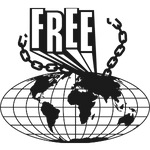


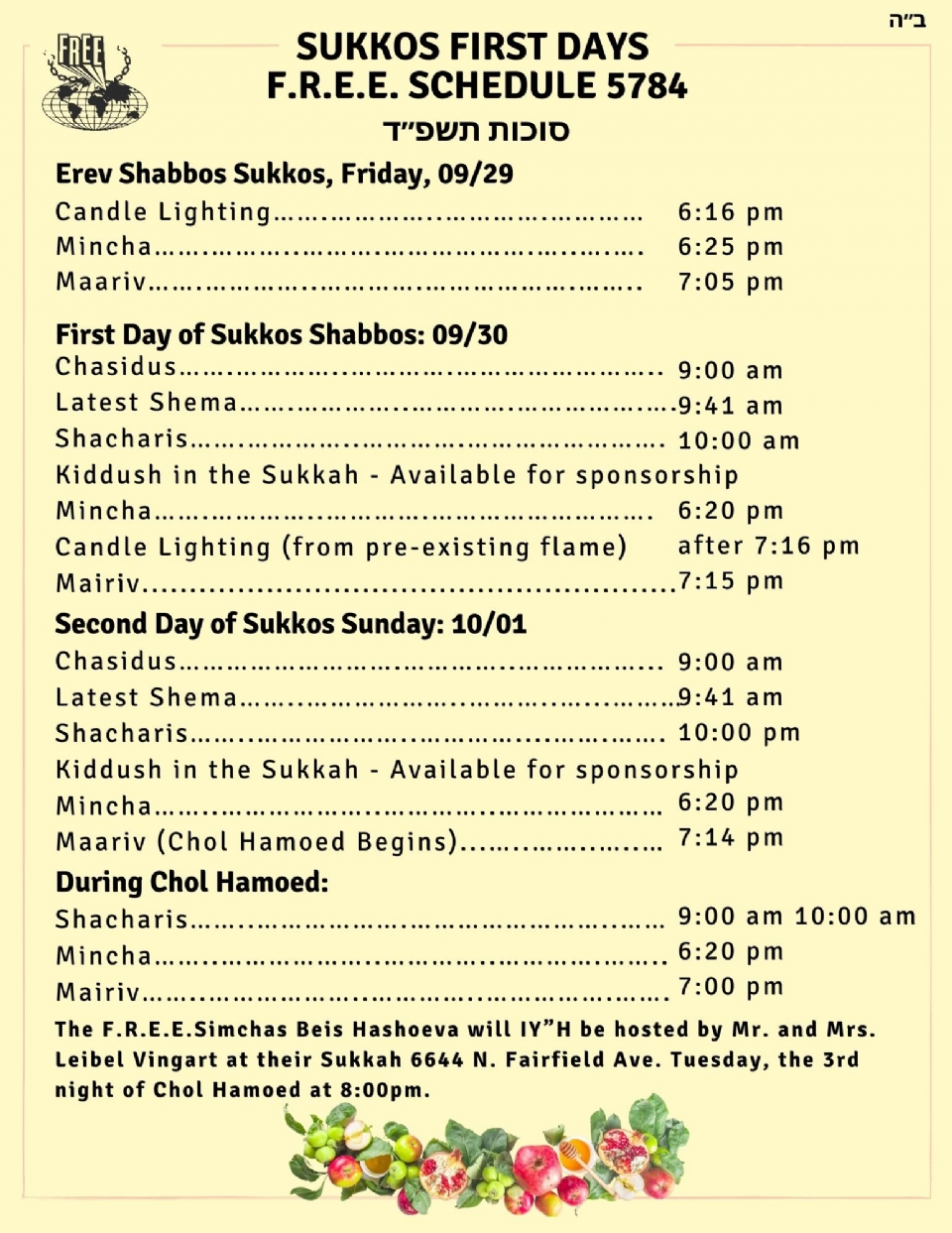
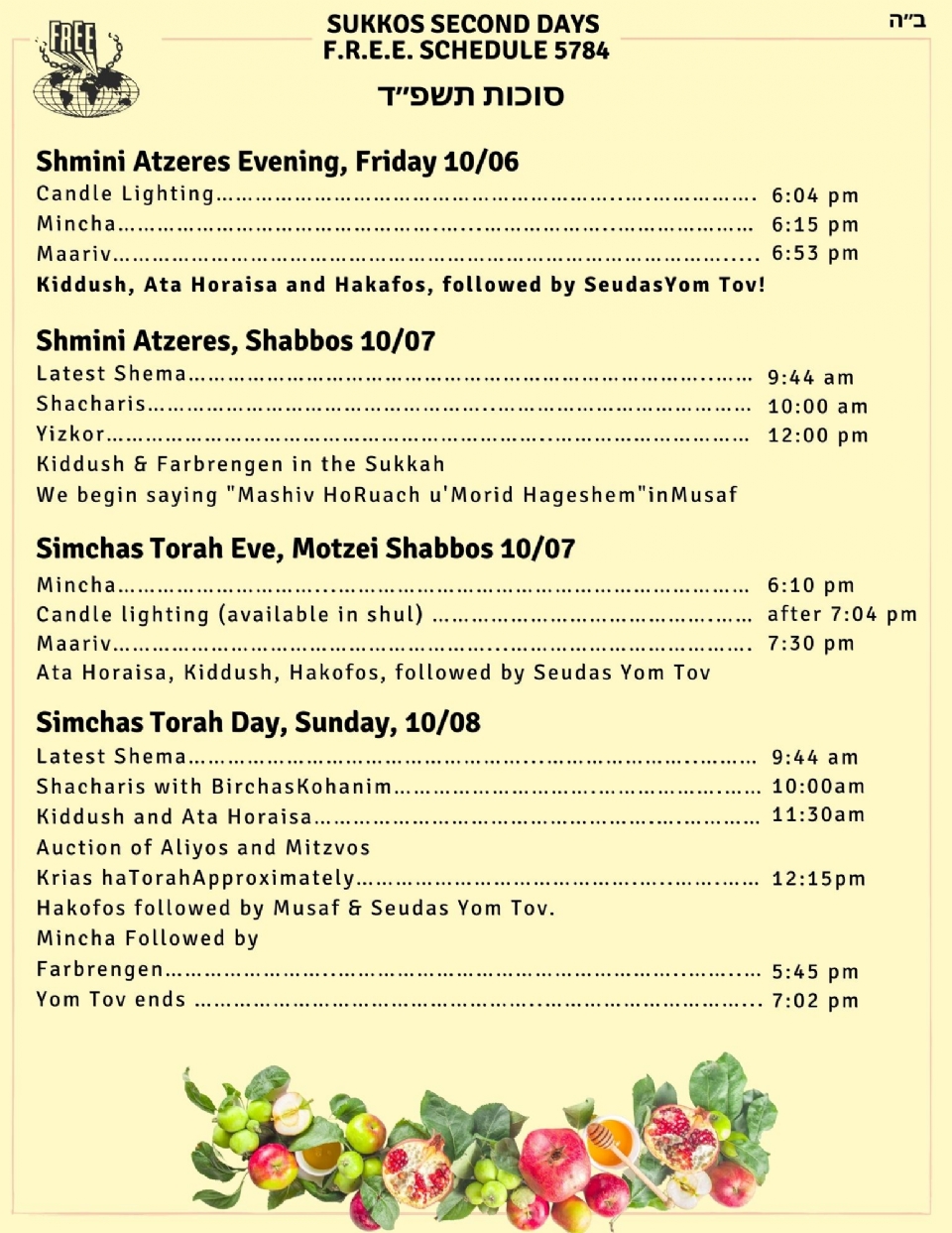

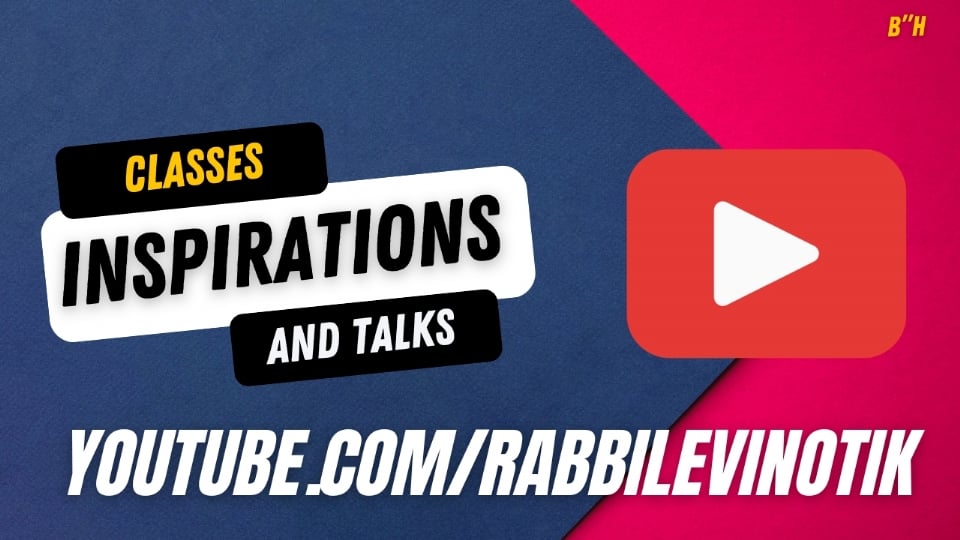


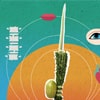

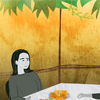
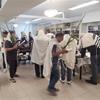



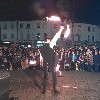
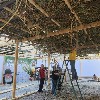
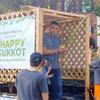
No comments:
Post a Comment